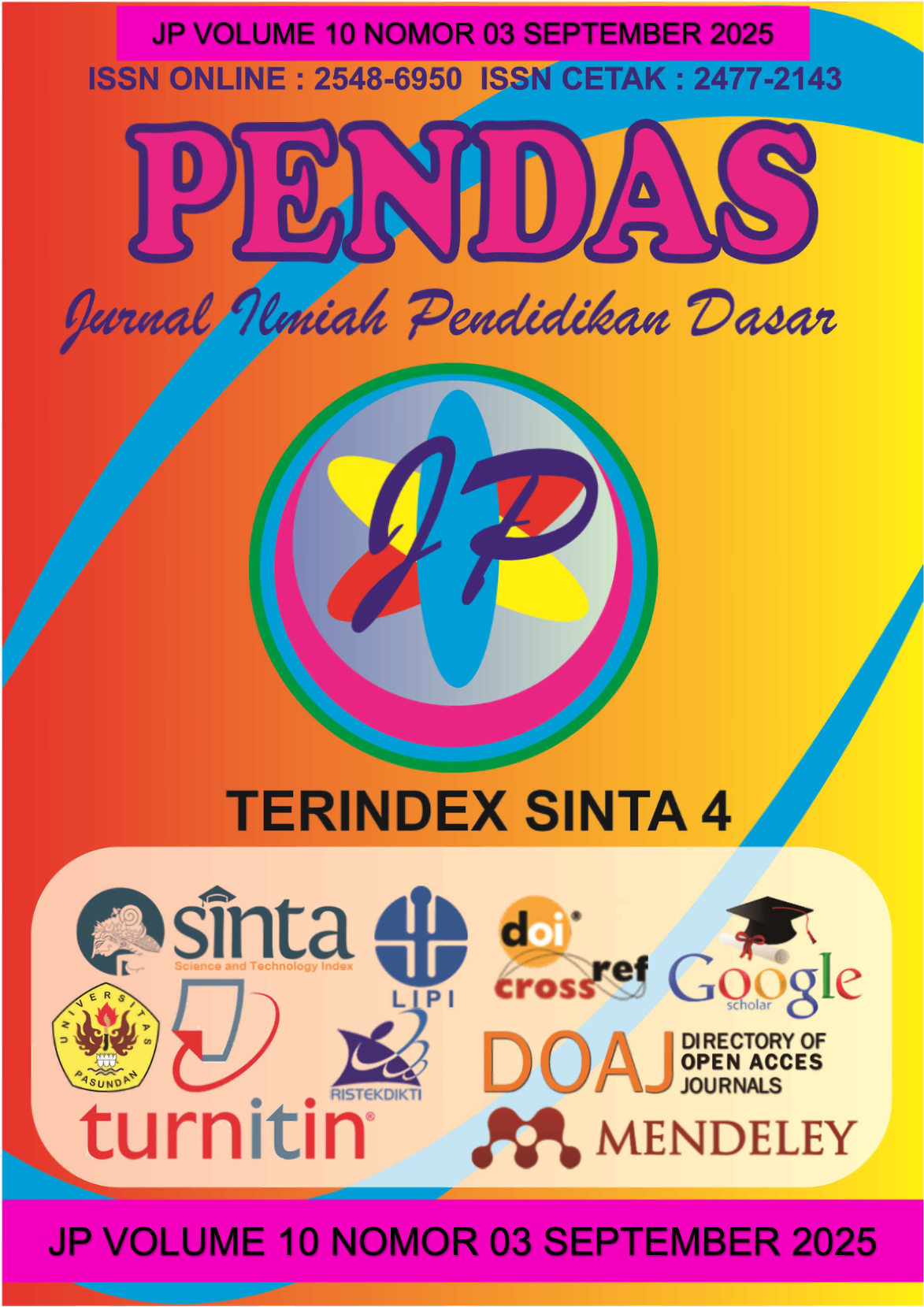THE INFLUENCE OF THE PRINCIPAL'S TRANSFORMATIONAL LEADERSHIP STYLE AND THE HUMAN RESOURCE MANAGEMENT (HRM) APPROACH ON STUDENTS' LEARNING OUTCOMES IN STATE ELEMENTARY SCHOOL IN PLAJU DISTRICT
DOI:
https://doi.org/10.23969/jp.v10i03.31292Keywords:
Transformational Principal Leadership Style, Human Resource Management (HRM) Approach, Learning OutcomesAbstract
This study aims to determine and analyze: (1) To determine the effect of the Transformational Principal's leadership style on student learning outcomes at Plaju District Elementary Schools; (2) To determine the effect of the Human Resource Management (HRM) approach on student learning outcomes at Plaju District Elementary Schools; (3) To determine the effect of the Transformational Principal's leadership style and the Human Resource Management (HRM) approach on student learning outcomes at Plaju District Elementary Schools. This study is a quantitative study with a correlation method. This study was conducted at Plaju District Elementary Schools with 42 respondents. Data collection techniques used questionnaires, observation, and documentation. The validity test used the product moment formula while the reliability test used Cronbach's Alpha. The analysis prerequisite test used the normality test, multicollinearity test, heteroscedasticity test, autocorrelation test, and the data was analyzed using multiple regression analysis techniques. The results of the study showed that: (1) there was an effect between the transformational principal's leadership style on student learning outcomes of 82.9%; (2) there is an influence between the Human Resource Management (HRM) approach and student learning outcomes of 86.4%; (3) there is an influence between the transformational principal's leadership style and the Human Resource Management (HRM) approach and student learning outcomes of 92.3%.
Downloads
References
Andriani, S. (2022). The Influence of Leadership Style on Teacher Performance in Elementary Schools. Journal of Education, 10(1), 25–30.
Asep, A. (2018). Educational Research Methodology. Alfabeta.
Badrudin, R. (2013). Human Resource Management. Alfabeta.
Bass, B. M., & Avolio, B. J. (1994). Improving organizational effectiveness through transformational leadership. Sage Publications.
Bass, B. M., & Riggio, R. E. (2018). Transformational Leadership (2nd ed). Routledge.
Creswell, J. W. (2013). Research Design: Qualitative, Quantitative, and Mixed Methods Approaches. SAGE Publications.
Erawati, N. (2022). Leadership Style and Teacher Performance. Journal of Educational Sciences, 9(2), 88–92.
Guntur, T. (2023). The Influence of HRM Approach on Teacher Motivation and Quality in Elementary Schools. Journal of Education and Learning, 8(3), 30–35.
Halean, S., Kandowangko, N., & Goni, S. Y. V. I. (2021). The Role of Education in Improving Human Resources at SMA Negeri 1 Tampan Amma (Vol. 14, Issue 2).
Hartati, D. (2022). Analysis of Leadership Style and Teacher Performance in Improving the Quality of Education. Journal of Elementary Education, 12(1), 100–105.
Hasibuan, M. S. P. (2007). Human Resource Management. Bumi Aksara.
Indra, P. (2021). HRM and Quality of Education in Elementary Schools. Journal of Education and Management, 11(2), 55–60.
Jannah, H. (2024). Principal Leadership and Educator Quality. Journal of Educational Sciences, 15(1), 45–50.
Kasali, R. (2021). Building Human Resource Competence in the 4.0 Era. Kompas.
Kesumawati, N., & Aridanu, I. (2024). Parametric Statistics of Educational Research. Palembang: Noer Fikri.
Priyatno, D. (2022). Own Data Processing Linear Regression Analysis with SPSS & Panel Data Regression Analysis with Eviews. Yogyakarta: CV Andi Offset.
Law Number 14 of 2005 concerning Teachers and Lecturers. (n.d.).
Downloads
Published
Issue
Section
License
Copyright (c) 2025 Pendas : Jurnal Ilmiah Pendidikan Dasar

This work is licensed under a Creative Commons Attribution 4.0 International License.



















